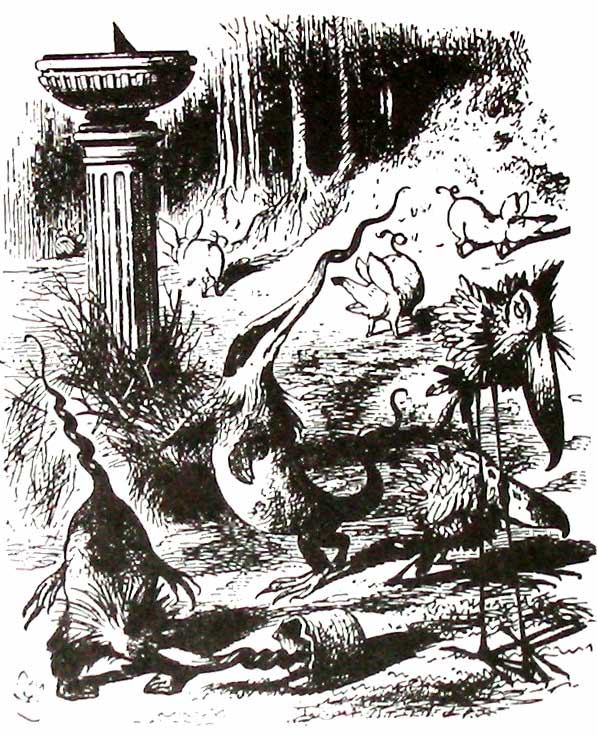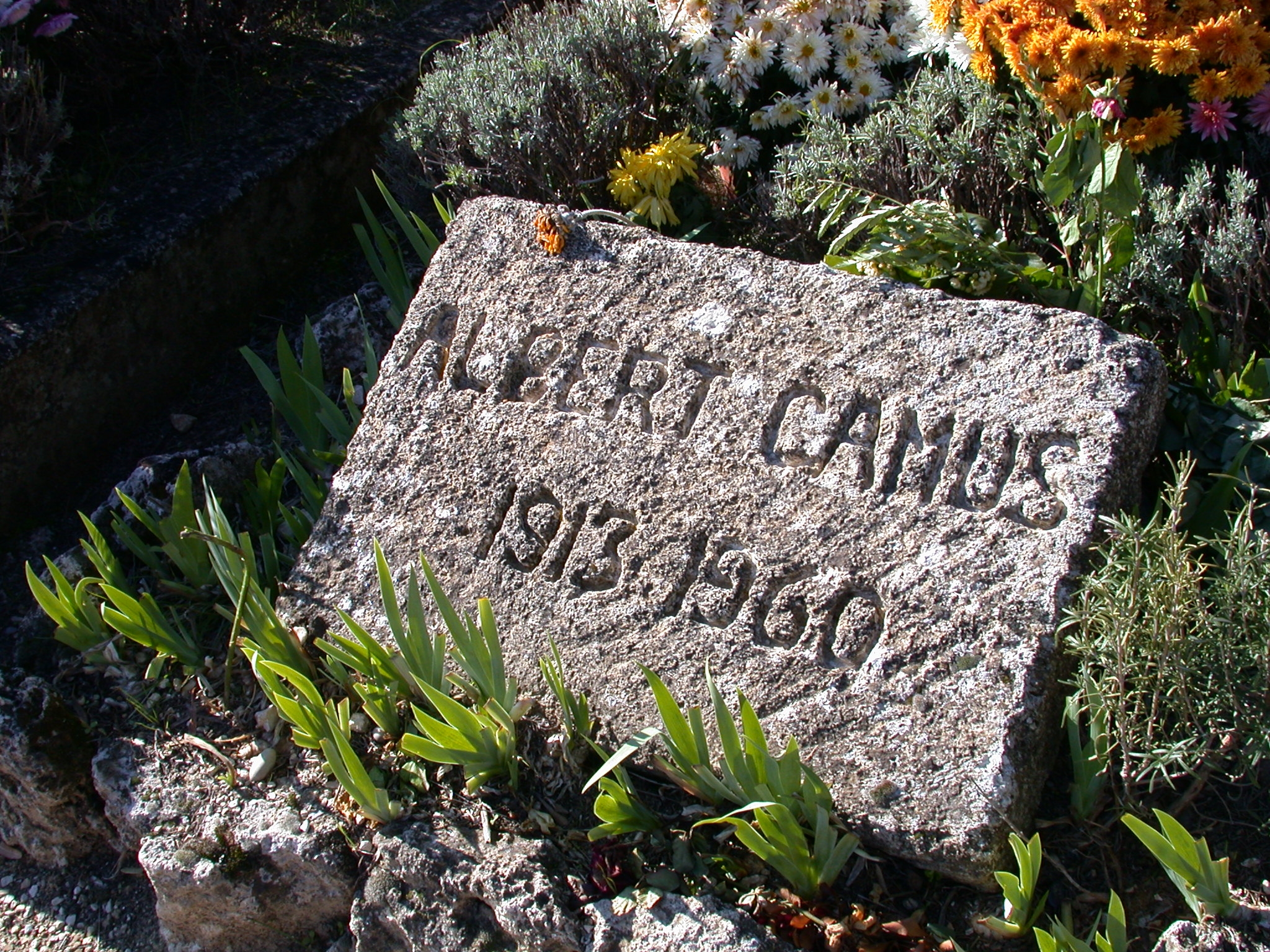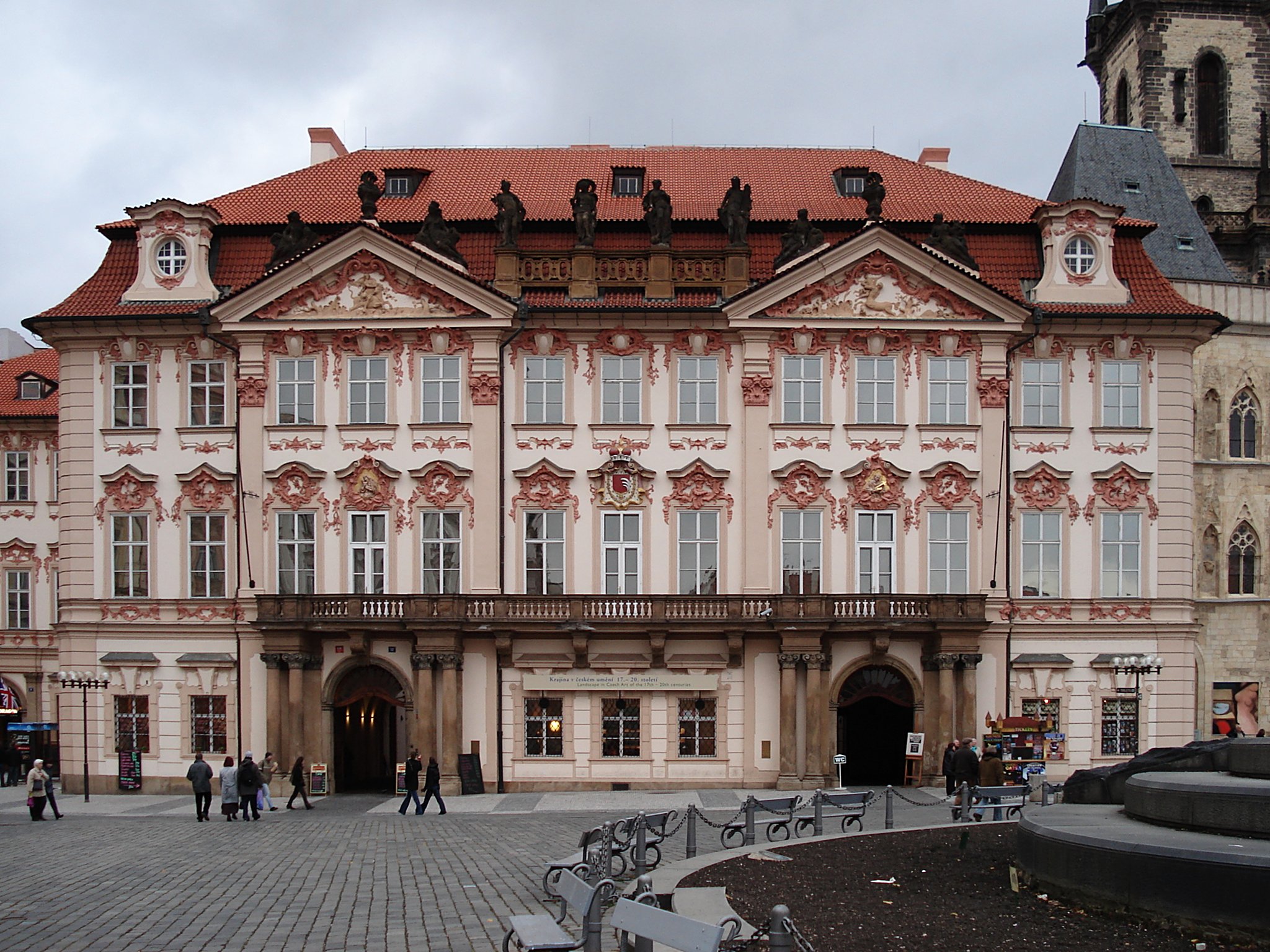|
Absurdist Fiction
Absurdist fiction is a genre of novels, Play (theatre), plays, poems, films, or other media that focuses on the experiences of characters in situations where they cannot find any inherent Meaning of life, purpose in life, most often represented by ultimately meaningless actions and events that call into question the certainty of existential concepts such as truth or value. In some cases, it may overlap with literary nonsense. The absurdist genre of literature arose in the 1950s and 1960s, first predominantly in France and Germany, prompted by post-war disillusionment. Absurdist fiction is a reaction against the surge in Romanticism in Paris in the 1830s, the collapse of religious tradition in Germany, and the societal and philosophical revolution led by the expressions of Søren Kierkegaard and Friedrich Nietzsche. Common elements in absurdist fiction include satire, dark humor, incongruity, the abasement of reason, and controversy regarding the philosophical condition of being " ... [...More Info...] [...Related Items...] OR: [Wikipedia] [Google] [Baidu] |
Novel
A novel is an extended work of narrative fiction usually written in prose and published as a book. The word derives from the for 'new', 'news', or 'short story (of something new)', itself from the , a singular noun use of the neuter plural of ''novellus'', diminutive of ''novus'', meaning 'new'. According to Margaret Doody, the novel has "a continuous and comprehensive history of about two thousand years", with its origins in the Ancient Greek and Roman novel, Medieval Chivalric romance, and the tradition of the Italian Renaissance novella.Margaret Anne Doody''The True Story of the Novel'' New Brunswick, NJ: Rutgers University Press, 1996, rept. 1997, p. 1. Retrieved 25 April 2014. The ancient romance form was revived by Romanticism, in the historical romances of Walter Scott and the Gothic novel. Some novelists, including Nathaniel Hawthorne, Herman Melville, Ann Radcliffe, and John Cowper Powys, preferred the term ''romance''. Such romances should not be con ... [...More Info...] [...Related Items...] OR: [Wikipedia] [Google] [Baidu] |
Existentialism
Existentialism is a family of philosophical views and inquiry that explore the human individual's struggle to lead an authentic life despite the apparent absurdity or incomprehensibility of existence. In examining meaning, purpose, and value, existentialist thought often includes concepts such as existential crises, angst, courage, and freedom. Existentialism is associated with several 19th- and 20th-century European philosophers who shared an emphasis on the human subject, despite often profound differences in thought. Among the 19th-century figures now associated with existentialism are philosophers Søren Kierkegaard and Friedrich Nietzsche, as well as novelist Fyodor Dostoevsky, all of whom critiqued rationalism and concerned themselves with the problem of meaning. The word ''existentialism'', however, was not coined until the mid 20th century, during which it became most associated with contemporaneous philosophers Jean-Paul Sartre, Martin Heidegger, Simone de Beau ... [...More Info...] [...Related Items...] OR: [Wikipedia] [Google] [Baidu] |
Dramatic Structure
Story structure or narrative structure is the recognizable or comprehensible way in which a narrative's different elements are unified, including in a particularly chosen order and sometimes specifically referring to the ordering of the plot: the narrative series of events, though this can vary based on culture. In a play or work of theatre especially, this can be called dramatic structure, which is presented in audiovisual form. Story structure can vary by culture and by location. The following is an overview of various story structures and components that might be considered. Definition Story is a sequence of events, which can be true or fictitious, that appear in prose, verse or script, designed to amuse or inform an audience. Story structure is a way to organize the story's elements into a recognizable sequence. It has been shown to influence how the brain organizes information. Story structures can vary culture to culture and throughout history. The same named story stru ... [...More Info...] [...Related Items...] OR: [Wikipedia] [Google] [Baidu] |
Literary Nonsense
Literary nonsense (or nonsense literature) is a broad categorization of literature that balances elements that make sense with some that do not, with the effect of subverting language conventions or logical reasoning. Even though the most well-known form of literary nonsense is nonsense verse, the genre is present in many forms of literature. The effect of nonsense is often caused by an excess of meaning, rather than a lack of it. Its humor is derived from its nonsensical nature, rather than wit or the "joke" of a punch line. History Literary nonsense, as recognized since the nineteenth century, comes from a combination of two broad artistic sources. The first and older source is the oral folk tradition, including games, songs, dramas, and rhymes, such as the nursery rhyme " Hey Diddle Diddle". The literary figure Mother Goose represents common incarnations of this style of writing. The second, newer source of literary nonsense is in the intellectual absurdities of court ... [...More Info...] [...Related Items...] OR: [Wikipedia] [Google] [Baidu] |
Comedy
Comedy is a genre of dramatic works intended to be humorous or amusing by inducing laughter, especially in theatre, film, stand-up comedy, television, radio, books, or any other entertainment medium. Origins Comedy originated in ancient Greece: in Athenian democracy, the public opinion of voters was influenced by political satire performed by comic poets in Ancient Greek theatre, theaters. The theatrical genre of Greek comedy can be described as a dramatic performance pitting two groups, ages, genders, or societies against each other in an amusing ''agon'' or conflict. Northrop Frye depicted these two opposing sides as a "Society of Youth" and a "Society of the Old". A revised view characterizes the essential agon of comedy as a struggle between a relatively powerless youth and the societal conventions posing obstacles to his hopes. In this struggle, the youth then becomes constrained by his lack of social authority, and is left with little choice but to resort to ruses which e ... [...More Info...] [...Related Items...] OR: [Wikipedia] [Google] [Baidu] |
Juxtaposition
Juxtaposition is an act or instance of placing two opposing elements close together or side by side. This is often done in order to Comparison, compare/contrast the two, to show similarities or differences, etc. Speech Juxtaposition in literary terms is the showing contrast by concepts placed side by side. An example of juxtaposition are the quotes "Ask not what your country can do for you; ask what you can do for your country", and "Let us never negotiate out of fear, but let us never fear to negotiate", both by John F. Kennedy, who particularly liked juxtaposition as a rhetorical device. Jean Piaget specifically contrasts juxtaposition in various fields from syncretism, arguing that "juxtaposition and syncretism are in antithesis, syncretism being the predominance of the whole over the details, juxtaposition that of the details over the whole". Piaget writes: In grammar, juxtaposition refers to the absence of linking elements in a group of words that are listed together. Thu ... [...More Info...] [...Related Items...] OR: [Wikipedia] [Google] [Baidu] |
Causality
Causality is an influence by which one Event (philosophy), event, process, state, or Object (philosophy), object (''a'' ''cause'') contributes to the production of another event, process, state, or object (an ''effect'') where the cause is at least partly responsible for the effect, and the effect is at least partly dependent on the cause. The cause of something may also be described as the reason for the event or process. In general, a process can have multiple causes,Compare: which are also said to be ''causal factors'' for it, and all lie in its past. An effect can in turn be a cause of, or causal factor for, many other effects, which all lie in its future. Some writers have held that causality is metaphysics , metaphysically prior to notions of time and space. Causality is an abstraction that indicates how the world progresses. As such it is a basic concept; it is more apt to be an explanation of other concepts of progression than something to be explained by other more fun ... [...More Info...] [...Related Items...] OR: [Wikipedia] [Google] [Baidu] |
Non Sequitur (literary Device)
A ''non sequitur'' ( , ; "[it] does not follow") is a conversational List of narrative techniques, literary device, often used for Comedy, comedic purposes. It is something said that, because of its apparent lack of meaning relative to what preceded it, seems Absurdity, absurd to the point of being humorous or confusing. This use of the term is distinct from the ''Formal fallacy, non sequitur'' in logic, where it is a fallacy. Etymology The expression is Latin for "[it] does not follow". It comes from the words ''non'' meaning "not" and the verb ''sequi'' meaning "to follow". Usage A ''non sequitur'' can denote an abrupt, illogical, or unexpected turn in plot or dialogue by including a relatively inappropriate change in manner. A ''non sequitur'' joke sincerely has no explanation, but it reflects the idiosyncrasies, mental frames and alternative world of the particular comic persona. Comic artist Gary Larson's ''The Far Side'' cartoons are known for what Larson calls "absurd, al ... [...More Info...] [...Related Items...] OR: [Wikipedia] [Google] [Baidu] |
Eugène Ionesco
Eugène Ionesco (; ; born Eugen Ionescu, ; 26 November 1909 – 28 March 1994) was a Romanian-French playwright who wrote mostly in French, and was one of the foremost figures of the French avant-garde theatre#Avant-garde, French avant-garde theatre in the 20th century. Ionesco instigated a revolution in ideas and techniques of drama, beginning with his "anti play", ''The Bald Soprano'' which contributed to the beginnings of what is known as the Theatre of the Absurd, which includes a number of plays that, following the ideas of the philosopher Albert Camus, explore concepts of absurdism and surrealism. He was made a member of the Académie française in 1970, and was awarded the 1970 Austrian State Prize for European Literature, and the 1973 Jerusalem Prize. Biography Ionesco was born in Slatina, Romania, Slatina, Romania. His father belonged to the Romanian Orthodox Church, Orthodox Christian church. His mother was of French and Romanian heritage. According to some sources, he ... [...More Info...] [...Related Items...] OR: [Wikipedia] [Google] [Baidu] |
Samuel Beckett
Samuel Barclay Beckett (; 13 April 1906 – 22 December 1989) was an Irish writer of novels, plays, short stories, and poems. Writing in both English and French, his literary and theatrical work features bleak, impersonal, and Tragicomedy, tragicomic episodes of life, often coupled with black comedy and literary nonsense. A major figure of Irish literature and one of the most influential writers of the 20th century, he is credited with transforming the genre of the modern theatre. Best remembered for his tragicomedy play ''Waiting for Godot'' (1953), he is considered to be one of the last Modernism, modernist writers, and a key figure in what Martin Esslin called the "Theatre of the Absurd." For his lasting literary contributions, Beckett received the 1969 Nobel Prize in Literature, "for his writing, which—in new forms for the novel and drama—in the destitution of modern man acquires its elevation." A resident of Paris for most of his adult life, Beckett wrote in both Frenc ... [...More Info...] [...Related Items...] OR: [Wikipedia] [Google] [Baidu] |
Albert Camus
Albert Camus ( ; ; 7 November 1913 – 4 January 1960) was a French philosopher, author, dramatist, journalist, world federalist, and political activist. He was the recipient of the 1957 Nobel Prize in Literature at the age of 44, the second-youngest recipient in history. His works include ''The Stranger (Camus novel), The Stranger'', ''The Plague (novel), The Plague'', ''The Myth of Sisyphus'', ''The Fall (Camus novel), The Fall'' and ''The Rebel (book), The Rebel''. Camus was born in French Algeria to ''pied-noir'' parents. He spent his childhood in a poor neighbourhood and later studied philosophy at the University of Algiers. He was in Paris when the Battle of France, Germans invaded France during World War II in 1940. Camus tried to flee but finally joined the French Resistance where he served as editor-in-chief at ''Combat (newspaper), Combat'', an outlawed newspaper. After the war, he was a celebrity figure and gave many lectures around the world. He married twice ... [...More Info...] [...Related Items...] OR: [Wikipedia] [Google] [Baidu] |
Franz Kafka
Franz Kafka (3 July 1883 – 3 June 1924) was a novelist and writer from Prague who was Jewish, Austrian, and Czech and wrote in German. He is widely regarded as a major figure of 20th-century literature. His work fuses elements of Literary realism, realism and the fantastique, and typically features isolated protagonists facing bizarre or surreal predicaments and incomprehensible socio-bureaucratic powers. It has been interpreted as exploring themes of social alienation, alienation, existential anxiety, guilt (emotion), guilt, and absurdity. His best-known works include the novella ''The Metamorphosis'' (1915) and the novels ''The Trial'' (1924) and ''The Castle (novel), The Castle'' (1926). The term '':en:wikt:Kafkaesque, Kafkaesque'' has entered the English lexicon to describe bizarre situations like those depicted in his writing. Kafka was born into a middle-class German- and Yiddish-speaking Czech Jewish family in Prague, the capital of the Kingdom of Bohemia, which b ... [...More Info...] [...Related Items...] OR: [Wikipedia] [Google] [Baidu] |









